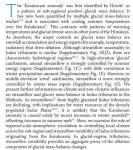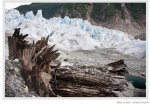- Joined
- Dec 31, 2016
- Messages
- 11,375
- Reaction score
- 2,650
- Gender
- Male
- Political Leaning
- Independent
I responded to your post 49 with post 66 saying all of Greenland would never melt without some catastrophe. You then said "Ludicrous to you, but not to the 98%."
Post #49 said nothing about ALL the Greenland Ice melting. Please don't misquote me.





